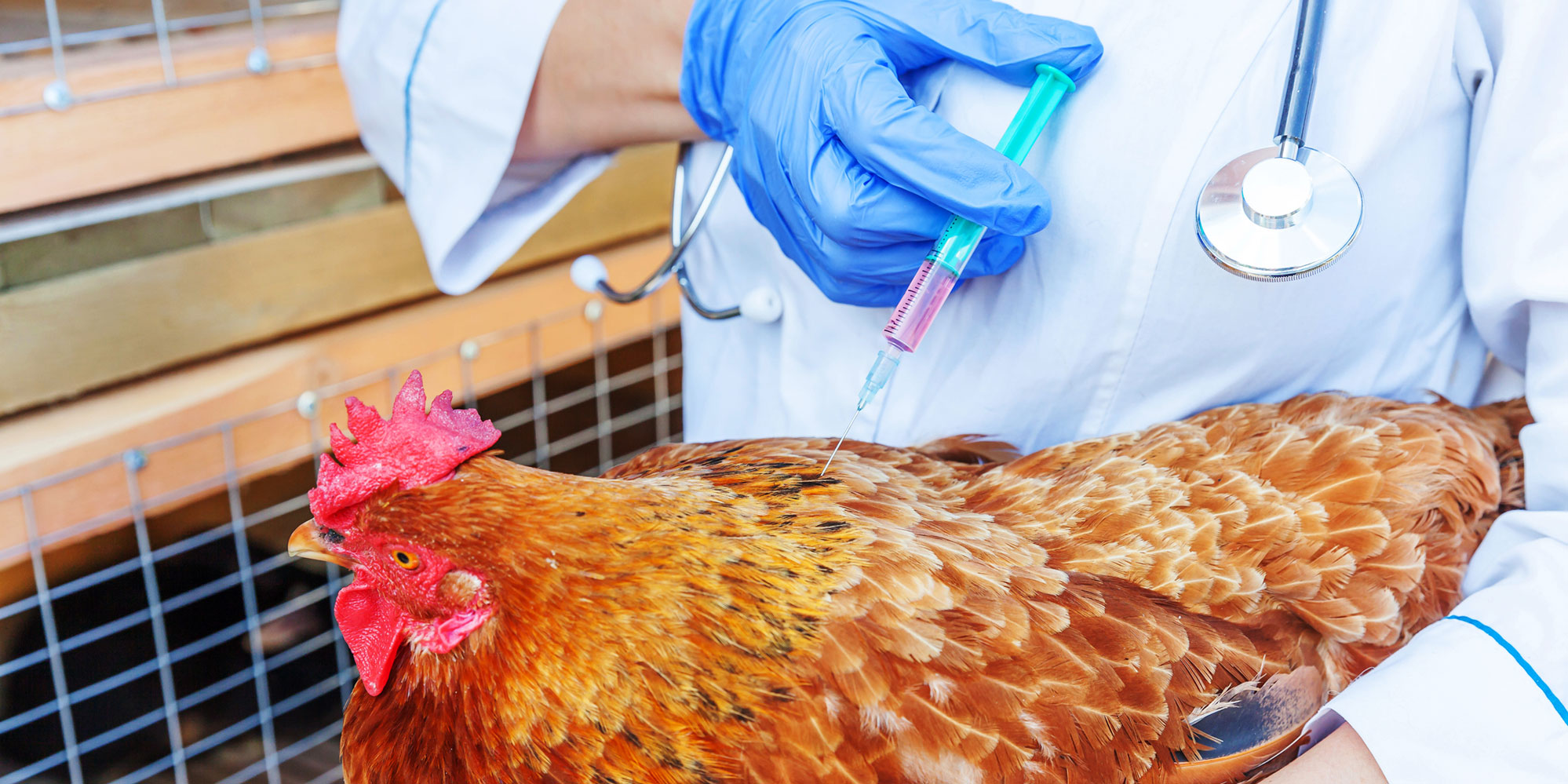Here’s the kicker in the Department of Agriculture’s long-delayed greenlighting of mass poultry vaccination: Biosecurity Council proactivity will lead to the roll-out of H5 vaccines that can’t protect against the H7N6 strain, the viral villain of the avian flu outbreak of 2023, the country’s worst yet.
A vaccine for the H7 mutation? Still “in the registration process,” says the Department of Agriculture, Land Reform and Rural Development.
Meanwhile, the virus most responsible for wiping out nearly 10 million birds in 2023 is still loitering in Mpumalanga, Limpopo and Gauteng, like a bad flu that just won’t go away.
Graphic by Yeshiel Panchia
Read more: Mass vaccination of South African poultry launched, Biosecurity Council set up
Don’t panic, but it’s endemic now, circulating in wild birds and on edge-of-recovery farms. And there’s no shield against it, not even a metaphorical one.
Wait, what is ‘biosecurity’?
John Steenhuisen has not explained that no farm has yet met the biosecurity protocols required to vaccinate against any strain, according to the South African Poultry Association (Sapa).
“Onerous” and “prohibitively expensive” are the words the association is using. But this chicken-and-egg situation isn’t new. It’s the latest act in a decade-long outbreak drama that has seen small farmers bankrupted, prices skyrocket and government agencies perpetually one step behind.
Nowhere is the policy and practicality mismatch clearer than in the agriculture department’s long-standing “nil compensation” policy.
Graphic by Yeshiel Panchia
Chicken and the egg
The logic behind the concept introduced in 1984 was sound. In cases where animals are infected with a highly contagious disease, the government mandates their destruction to prevent further outbreaks. The argument for nil compensation is that infected animals have no market value and cannot be sold, making compensation unnecessary.
However, the government must balance the interests of farmers with public funds. Paying compensation for infected animals could create financial strain, especially in large-scale outbreaks – especially when financial sanctions were hurting the economy (in 1984).
To be fair, the 1986 amendment of the Animal Diseases Act provided for the possibility of compensation. So the move towards a “nil compensation” policy for avian flu appears to be significantly influenced by the 2009 amendment to Regulation 30, which granted the director discretionary power over compensation amounts and the subsequent interpretation that diseased birds hold no value.
A blunt instrument
But this approach, cemented after the 2017 outbreak, has arguably done more harm than good. With no safety net, farmers have every reason not to report infections. The results? Delayed containment. Unregulated culls. And, in some cases, infected birds sold into the informal market.
That incentive structure came under legal fire last year when a George-based farmer took the state to court over a R32-million loss from 387,000 culled chickens and 5.39 million eggs destroyed in a 2021 outbreak. In a Western Cape Division of the High Court ruling, the judge ordered the agriculture department to reconsider the claim, using the value of the birds in a healthy state as the basis.
Read more: Avian flu — court orders government to negotiate damages payout with farmer
If enforced, it could open the door to billions in retroactive claims.
But enforcement is the key word. As of mid-2025, there’s still no confirmation that the agriculture department has changed its stance – or that it will.
The future is viral
Steenhuisen’s department wants vaccination to be the foundation of a future-proof poultry sector. Which is fair, but vaccines alone won’t cut it, especially when half the threat is unaccounted for.
This is a virus that doesn’t just travel across provinces. It migrates with birds, adapts, mutates and ignores borders. And the state’s current selective vaccination, compensation and regulation playbook won’t fix that.
The new Biosecurity Council could help coordinate a smarter response. There’s cautious optimism that weekly negotiations between Sapa and the agriculture department might produce more realistic vaccination protocols.
The industry is pushing hard for a tiered, affordable system that doesn’t just favour industrial-scale producers.
But unless H7 vaccines become available soon, and unless the state offers fair compensation and support for biosecurity upgrades, we’re looking at a future where avian flu is endemic and chicken is a luxury item. DM





